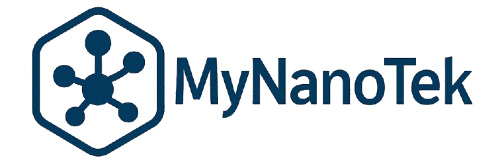The economic impact of nanotechnology: Opportunities and challenges
Is Nanotechnology the Key to a New Economic Era?
As we stand on the brink of a technological revolution, one question looms: how is nanotechnology transforming the global economy, and is it poised to become the cornerstone of future economic growth? With its potential to create new markets, boost job creation, and drive innovation, nanotechnology is rapidly reshaping economies worldwide.
The Promise and Potential of Nanotechnology
Nanotechnology, often heralded as the catalyst for the next industrial revolution, refers to the manipulation of matter on an atomic, molecular, and supramolecular scale. Its applications span across numerous industries, including medicine, electronics, energy, and materials science. By enabling the creation of products and processes that were previously unimaginable, nanotechnology is unlocking unprecedented economic opportunities.
Definition
Nanotechnology: The science, engineering, and application of materials and devices with nanoscale dimensions (typically less than 100 nanometers).
Economic Opportunities in the Nanotech Landscape
Nanotechnology is a beacon of hope for new market creation. It plays a crucial role in the development of groundbreaking products, such as lightweight and stronger materials, advanced medical diagnostics, and more efficient energy solutions. These innovations are not only enhancing existing products but also paving the way for entirely new product categories.
“The potential for nanotechnology is vast and could potentially lead to the development of new materials and technologies that contribute significantly to economic growth.” – Richard Feynman
- Revolutionizing the healthcare industry with targeted drug delivery systems and regenerative medicine.
- Enhancing the performance and capabilities of electronic devices, leading to smarter and more energy-efficient gadgets.
- Creating sustainable energy solutions, including improved solar cells and energy storage systems.
- Innovating advanced materials that offer superior strength-to-weight ratios.
The Challenges of Nanotechnology Integration
Despite its potential, the integration of nanotechnology into the economy is not without challenges. As with any disruptive technology, the path to widespread adoption is fraught with hurdles, including ethical concerns, regulatory challenges, and potential risks to health and the environment.
The rapid pace of nanotech innovations often outstrips the ability of regulatory bodies to keep up. This regulatory lag can lead to uncertainty for businesses looking to invest in nanotechnology, potentially slowing its economic impact. Furthermore, the long-term health and environmental effects of nanomaterials are not yet fully understood, adding another layer of complexity to its adoption.
“With great power comes great responsibility.” – Voltaire
This sentiment resonates strongly in the context of nanotechnology, as the potential benefits must be weighed against possible risks.
Addressing the Risks and Ethical Concerns
To harness the full economic potential of nanotechnology while minimizing its risks, several strategies can be employed:
- Investing in comprehensive research to understand the long-term implications of nanomaterials on health and the environment.
- Developing robust regulatory frameworks that keep pace with technological advancements.
- Fostering international collaboration to harmonize regulations and standards globally.
- Encouraging ethical considerations in nanotech research and development to ensure responsible innovation.
The Way Forward: Embracing Nanotechnology for Economic Growth
Despite the challenges, the potential for economic growth through nanotechnology remains immense. By addressing the risks and ethical concerns head-on and fostering an environment conducive to innovation, economies can leverage nanotechnology to create sustainable growth.
In a world that is increasingly driven by technology trends, embracing nanotechnology is not just an option—it’s a necessity. This burgeoning field holds the key to unlocking new levels of economic prosperity by fostering innovation, creating jobs, and developing new markets.
Now it’s your turn. As businesses, regulators, and individuals, we must actively participate in shaping the future of nanotechnology. By doing so, we can ensure that its benefits are maximized and its risks are minimized, paving the way for a brighter economic future.
